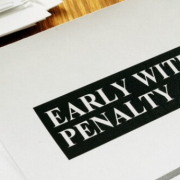Five Common Errors To Fix In Your IRA Before The IRS Flags Them
IRA custodians are required to issue IRS Form 5498 by May 31 to report certain IRA activity for the previous year.
You might receive a Form 5498 for 2023 if you had reportable deposits for your IRA, such as regular IRA and rollover contributions, and Roth IRA conversions. Form 5498 provides the basis for auditing such IRA activities and helps you to identify and fix related errors before the IRS flags them.
The following are some of the Form 5498-related questions you can use to audit your IRA.
1. Do You Have The Right Type of IRA?
Your IRA custodian uses Box 7 to let you and the IRS know the type of IRA you own. The options are IRA (traditional), SEP, Simple, and Roth IRA.
If the wrong IRA adoption agreement was completed when setting up your IRA or an incorrect option was selected during the data input process, your contribution intended for your traditional IRA would have been made to a Roth IRA or vice versa. If you made such an error, you may fix it by recharacterizing your IRA contribution. If your IRA custodian made the error, contact them to make any necessary corrections.
The wrong type of IRA could also mean that any rollover contributions did not produce the intended results. For example, you might have intended to roll over a distribution from your traditional 401(k) account to your traditional IRA, where the rolloverirs would be excluded from income and be nontaxable. However, if the rollover was made to a Roth IRA, it would not be excluded from income.
Example: Carl requested a distribution of $100,000 from his traditional 401(k) account, all of which represents pretax funds. Carl intended to roll over the $100,000 to his traditional IRA, which would make the $100,000 distribution nontaxable. A month later, Carl opened an IRA to which he rolled over the $100,000. When Carl received his Form 5498 for the IRA, he realized that it was reported as a Roth IRA and not a traditional IRA. When he checked with his bank, he realized that he had completed an adoption agreement for a Roth IRA instead of a traditional IRA. Consequently, the rollover was treated as a Roth conversion and included in his income.
Reminder: A reversal or recharacterization of a Roth conversion is no longer allowed. Therefore, Carl would be stuck with the conversion unless an error was made by a custodian that is willing to correct such an error.
Whether an error resulting from the wrong type of IRA can be fixed could depend on whether you made the mistake or if the IRA custodian did. If such an error occurred with your IRA, enlist the help of your financial or tax advisor to work with the IRA custodian to determine whether corrections can be made.
2. Is Your Roth IRA Conversion Total Correct?
Your Roth IRA conversion total (Box 3) should include only amounts converted from a traditional IRA, SEP IRA, or Simple IRA to your Roth IRA.
Reminder: A Simple IRA cannot be converted to a Roth IRA unless a Simple contribution was made to the Simple IRA at least two years before the conversion.
Common errors made with reporting Roth IRA conversions include:
- Reporting an indirect IRA conversion as a rollover contribution. This error often occurs when an IRA owner makes an indirect conversion by taking a distribution from a traditional, SEP, or Simple IRA and depositing the amount into a Roth IRA within 60 days of receipt. Some custodians are unaware that an indirect conversion must be reported in the same manner as a conversion done directly between a traditional IRA and the Roth IRA—which is as a Roth conversion in Box 3 of Form 5498. Such an error could cause the IRS to flag your IRA activity for review. The IRS says this is one of the most common errors made with Roth IRA conversions.
- Reporting a rollover from an employer plan to a Roth IRA as a Roth IRA conversion in Box 3 instead of reporting it as a rollover in Box 2. While a rollover from a traditional employer plan account to a Roth IRA results in a Roth conversion, such an amount must be reported in Box 2, Rollover Contributions.
If the amount reported in Box 3 is incorrect, contact your IRA custodian to have it fixed.
3. Is Your ‘Rollover Contributions’ Total Correct?
Your rollover contributions (Box 2) include the following:
- A distribution from an employer plan (defined-contribution, defined-benefit, 403(b), or governmental 457(b) plan) that is rolled over to a traditional IRA or a Roth IRA. This includes direct rollovers and indirect rollovers.
- A distribution from your traditional IRA rolled over to your traditional IRA.
- A distribution from your Roth IRA that is rolled over to your Roth IRA.
- An eligible military death gratuity or Servicemembers’ Group Life Insurance payment to a Roth IRA.
Common errors include:
- A rollover contribution that is treated as a transfer and thus not reported as a rollover on Form 5498.
- An IRA-to-IRA transfer that was erroneously treated as a rollover by the IRA custodian and reported on Form 5498. Transfers between IRAs must not be reported on Form 5498.
- If your rollover contribution in Box 2 is incorrect, contact your IRA custodian immediately to fix errors that can be corrected.
4. Are Your Traditional and Roth IRA Contributions Applied to the Right Year?
If your instructions that accompanied your 2023 IRA contribution designated the contribution for 2023, but your IRA custodian reported it for 2022 or 2024, contact them immediately to correct it.
Such an error often occurs when IRA contributions made from Jan. 1 to April 15 of the previous year are applied to the year in which they are received. A contribution reported for the wrong year could create multiple issues, including the total on record with the IRS showing more than you are permitted to contribute for a year.
5. Are Your 2023 Regular IRA Contributions Within the Statutory Limit?
Your regular IRA contribution for 2023 is capped at the lesser of 100% of your eligible compensation or $6,500. If you were at least age 50 by the end of 2023, the $6,500 is increased by $1,000—making the maximum total $7,500. If your compensation was less than $6,500 ($7,500 if at least age 50 by the end of 2023), you may use your spouse’s compensation to meet the compensation requirement if you filed a joint tax return for the year.
Gather the Forms 5498 for all your traditional IRAs and Roth IRAs and add the following amounts:
- Regular contributions to your traditional IRA: Box 1.
- Regular contributions to Roth IRAs: Box 10.
- Direct trustee-to-trustee transfers rolled over from a 529 plan to a Roth IRA: Box 10.
If the total amounts for Box 1 and Box 10 exceed the amount you are eligible to contribute for 2023, the excess amount will be subject to an annual 6% excise tax—subject to a statute of limitations—unless it is properly corrected by your 2023 tax-filing due date, plus extension.
Reminder: You are eligible to make a regular Roth IRA contribution only if your modified adjusted gross income, or MAGI, is below certain amounts based on your tax-filing status. If your MAGI exceeds the applicable limit, you may recharacterize your Roth IRA contribution to a traditional IRA by your 2023 tax-filing due date, plus extensions. Or you may remove it as a return of excess contribution.
If you file your tax return by the due date, you will get an automatic six-month extension to correct any excess IRA contribution or recharacterize an IRA contribution. Contact your IRA custodian regarding their operational procedures and documentation requirements to correct an excess IRA contribution or recharacterize an IRA contribution.
What to Do With Your Form 5498
Keep copies of your Forms 5498 with your other tax return documents. If your IRA custodian already provided you with a fair market value statement for your IRA, and your IRA has no contribution-related activity, you might not have been sent a Form 5498 in May. If you do receive a Form 5498, provide a copy to your tax preparer. Your tax preparer should match the information with the reporting done on your tax return and retain a copy for future reference.
If you did not receive Form 5498 when you should have, contact your IRA custodian. Discuss any required corrections with your tax advisor and contact your IRA custodian if necessary. IRA custodians are more likely to correct errors if they made those errors and if they are notified in a timely manner.
Source: Morningstar







